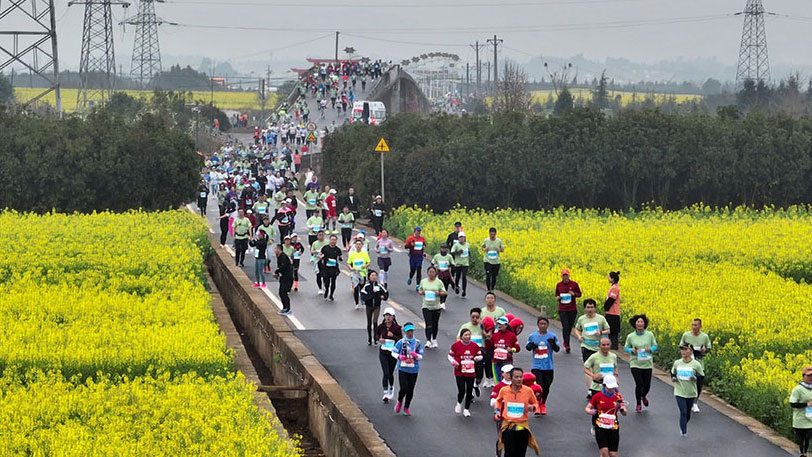China and Europe aim to overcome obstacles to strengthen ties
Over the past three years, from the start of 2020 until the close of 2022, Sino-European relations were significantly impacted by the COVID-19 pandemic. Fear about the unknown virus, unprecedented measures and inward-looking strategies generated a type of uncertainty. The lack of in-person conversations only added to the challenge. Although important political meetings were conducted in the digital realm, the impersonal character of such interactions presented obstacles.
Despite these difficulties, China and the European Union cooperated on several fronts. For instance, trade between the two entities experienced growth, except for the pandemic's first phase. The two sides also valued the role of the World Health Organization during the pandemic and joined forces in COVAX to help others with vaccines. However, problems and disagreements frequently overshadowed areas of coordination. In a remarkable case, the Comprehensive Agreement on Investments was not ratified in 2021, despite seven years of challenging bilateral negotiations.
As 2022 came to a close, physical communication began to return to some normalcy. China and Europe decided to work together and create the necessary presuppositions for 2023 to be a different, better year.
The Chinese government recently announced optimized pandemic control and prevention measures, which will undoubtedly boost people-to-people exchanges. Tourism flows to and from China will resume this year. Such a resumption will benefit both the Chinese and European economies. As a result, China's reopening has been positively perceived in Europe.
The recent visit of China's top diplomat Wang Yi to Germany, where he spoke at the Munich Security Conference, and to France, Italy and Hungary is another indication of the Chinese government's and European countries' will to collaborate. As already mentioned, efforts are demonstrating continuity. French President Emmanuel Macron and Italian Prime Minister Giorgia Meloni will visit Beijing this year. The press release that the French Ministry of Foreign Affairs issued after Wang's visit to Paris highlighted several sectors where interests intersect, including Ukraine, Iran, food security, biodiversity and the global financial pact. A similar trend is evident in relations between China and other European states as well as the European Union.
2023 is a crucial year, as while the pandemic may be over, its economic consequences linger. Additionally, the conflict in Ukraine continues to cause regional and international instability and death. In such challenging circumstances, it is difficult to envisage better days for the world without cooperation, and China and Europe are crucial actors in this process.
A few days ago, statistics revealed that Manzhouli, China's largest land port, handled 4,818 freight trains between China and Europe in 2022, up 37.6% on a yearly basis. These trains carried 382,058 TEUs of cargo, with a total value of approximately $7 billion. The resilience of globalization and interconnectivity remains strong. Of course, discussions ought to look beyond trade. While China and the EU may disagree on many issues, there is a willingness to talk to each other. Expectations for fruitful consultations, even without leading to a synthesis of opinions, are high in 2023.
Photos
Related Stories
- North China city launches first China-Europe freight train
- Building safer world requires right choice by China, Europe: senior diplomat
- Deepening relations with China "the only reasonable choice" for Europe, says French expert
- SW China's Guizhou sees busy China-Europe freight train service
- China's Liaoning sees busy China-Europe freight train service
Copyright © 2023 People's Daily Online. All Rights Reserved.









